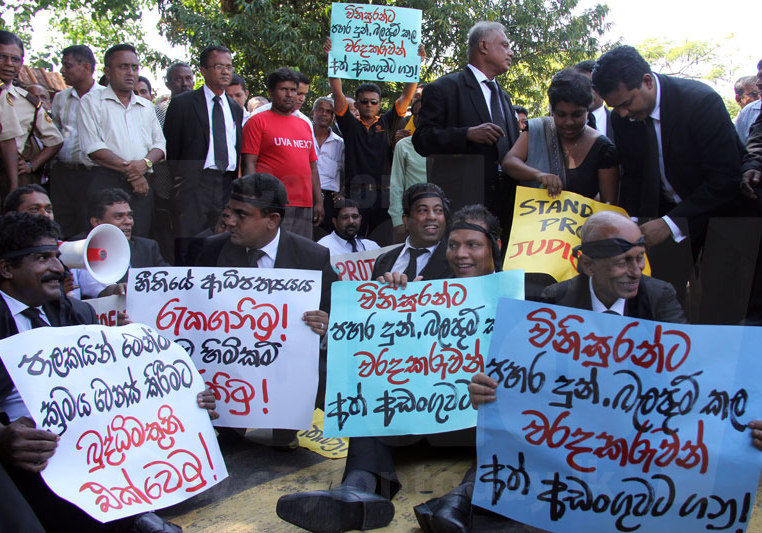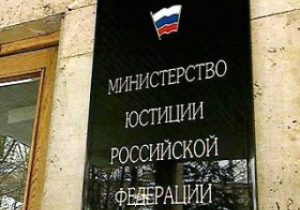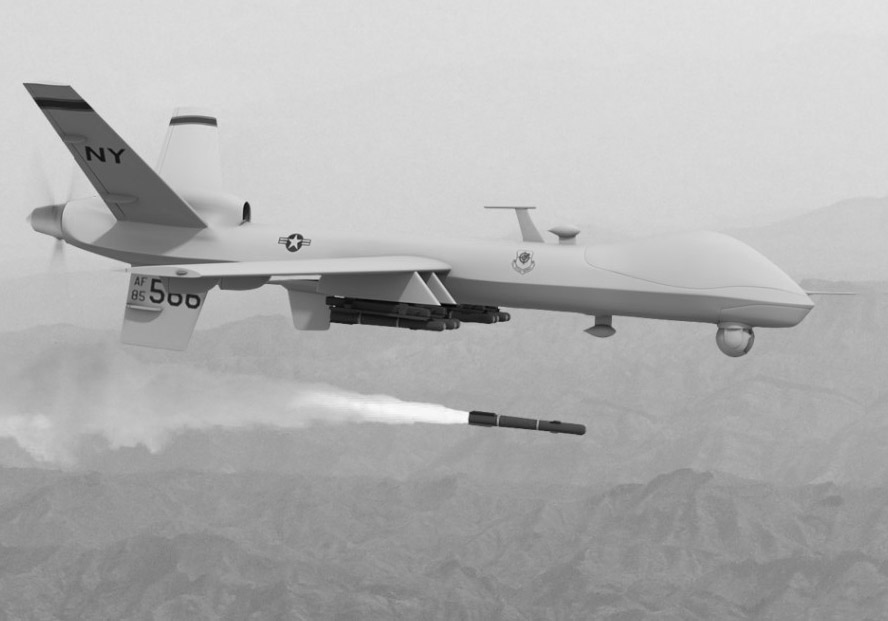
Apr 1, 2014
The ICJ has submitted a briefing to the UN Secretary-General on capital punishment in connection with real or purported engagement in consensual sexual relations, in view of his forthcoming report on the question of the death penalty to the Human Rights Council.
The submission focuses on country developments regarding the retention, imposition and carrying out of capital punishment in connection with real or purported engagement in consensual sexual relations.
The ICJ opposes the death penalty under any circumstances and considers that laws criminalizing real or purported engagement by adults in consensual sexual relations contravene international human rights law and standards.
The UN Secretary-General will submit his report to the 27th session of the Human Rights Council (September 2014), covering developments between 1 April 2013 and 31 March 2014 on the question of the death penalty.
SGreportDeathPenalty-AnalysisBrief-2014

Feb 25, 2014
The ICJ urges the Human Rights Council to establish an international commission of inquiry to investigate alleged violations of international human rights and humanitarian law in Sri Lanka.
“The Sri Lankan justice system can no longer ensure accountability for human rights violations and war crimes,” said Sam Zarifi, ICJ Asia Pacific Regional Director. “The judiciary has been stripped of its independence and impartiality, and lawyers continue to be intimidated, harassed and subjected to improper interference.”
The ICJ welcomes the UN High Commissioner’s report on Sri Lanka released yesterday.
In the report, Navi Pillay notes with concern that the Government of Sri Lanka has failed to make any significant progress in any of the areas of concern she had highlighted in her oral update to the Human Rights Council in September 2013.
The Government has failed to show any progress towards a credible national investigation process with tangible results, including the prosecution of perpetrators of serious violations of human rights and international humanitarian law; failed to address the serious and ongoing problem of enforced disappearances; failed to set a clear timeline for the disengagement of the military from activities that should be civilian; failed to prosecute a single incident of violence against journalists and human rights defenders; and failed to take measures to address the increasing attacks against religious minorities.
The High Commissioner remarked that ‘national mechanisms [in Sri Lanka] have consistently failed to establish the truth and achieve justice.’
A briefing paper prepared jointly with the International Bar Association published today (see below) explains how ongoing attacks on the judiciary and legal profession have undermined the rule of law and resulted in a general failure of the Sri Lankan justice system to ensure accountability for human rights.
“Judges and lawyers are routinely subjected to intimidation, hindrance, harassment, and improper interference,” Zarifi added. “In the last 18 months, we are aware of at least 10 incidents against judges and lawyers and to date, no one has been prosecuted for these attacks.”
More than a year after the highly politicized impeachment of the 43rd Chief Justice Dr Shirani Bandaranayake, there continues to be no transparent, independent, impartial and fair procedure for the removal or discipline of judges in Sri Lanka.
Pursuant to its legal obligations under the International Covenant on Civil and Politicial Rights, as elaborated on by the UN Basic Principles on the Independence of the Judiciary, Sri Lanka must take measures to ensure the judiciary is protected from improper influences, inducements, pressures, threats and interferences.
The appointment process for the judiciary must be based on integrity and ability and there must be safeguards against judicial appointments for improper motives.
“The 18th Amendment, which endows President Mahinda Rajapaksa unilateral authority to make judicial appointments has cleared the way for a politicized appointments process, where appointments are made on the basis of loyalty and personal patronage rather than seniority, integrity and proven competence,” said Zarifi.
“What we are left with is a judiciary that is no longer capable of achieving justice and ensuring accountability for human rights violations.”
The High Commissioner concluded that in the absence of a credible national process, ‘the international community has a duty to take further steps, which will advance the right to truth for all in Sri Lanka and create further opportunities for justice, accountability and redress.’
The ICJ supports the recommendations in the High Commissioner’s report and calls on the member States of the Human Rights Council to establish an international independent commission of inquiry to investigate allegations of violations of human rights and humanitarian law in Sri Lanka.
Contact:
Sam Zarifi, ICJ Asia Pacific Regional Director, (Bangkok); t: +66 807819002; email: sam.zarifi(a)icj.org
Sheila Varadan, ICJ Legal Advisor, South Asia Programme (Bangkok), t: +66 857200723; email: sheila.varadan(a)icj.org
Background
The United Nations High Commissioner for Human Rights issued its Report pursuant to Human Rights Council Resolution 22/1, which encouraged the Government of Sri Lanka to implement the constructive recommendations of the Lessons Learnt and Reconciliation Commission, to implement the recommendations of the 2013 report of the United Nation High Commissioner for Human Rights on Sri Lanka, as well as conduct an independence and credible investigation into allegations of violations of international human rights and humanitarian law.
At the September 2013 session of the Human Rights Council, the ICJ delivered a statement saying, “We look forward to the presentation of a comprehensive report from the High Commissioner at the 25th session and urge the Council to prepare to take action at that time if the Government continues to fail to take concrete steps to ensure justice and accountability for alleged violations of international human rights law and humanitarian law in Sri Lanka.”
Sri Lanka-Rule of Law undermined-Advocacy-analysis brief-2014 (download Advocacy Note in English pdf)
Sri Lanka-Rule of Law undermined – Advocacy-analysis brief 2014 -Fr (download Advocacy Note in French pdf)
Sri Lanka-Rule of Law undermined – Advocacy-analysis brief 2014-Sp (download Advocacy Note in Spanish pdf)
Sri Lanka-Rule of Law undermined – Advocacy-analysis brief 2014-Ar (download Advocacy Note in Arabic pdf)

Jan 22, 2014
An ICJ legal opinion issued today concludes that recent Amendments to the NGO Law amount to an illegitimate interference with rights to freedom of association and expression protected in international human rights law.
Amendments to the NGO Law require a wide range of Russian non governmental organizations (NGOs) to register as “foreign agents” or else face severe sanctions.
Analyzing the law and its recent application in practice, the ICJ opinion describes the serious impact of the law on Russian civil society organizations that seek to contribute to public debate on issues such as the protection of human rights or the environment.
Under the law, NGOs that receive donations from foreign sources and engage in “political activity” must register as “foreign agents”.
Those NGOs that register as foreign agents are subject to additional burdensome administrative requirements. NGOs that fall within the definition of foreign agents but do not register are liable to heavy fines and other penalties.
Róisín Pillay, Director of the Europe Programme at the ICJ said: “This law confronts many NGOs with unacceptable choices. They may opt to stop receiving foreign funding, which may threaten their very viability and survival. They may withdraw from any activity that could be considered ‘political’, meaning that they cease to take action or voice their opinions on the issues of public concern that the NGO was formed to address. Or, they may register as a foreign agent, which is likely to impair the organization’s capacity to function effectively, if at all. Whichever route an NGO chooses, its freedom of association and expression will be detrimentally affected.”
The ICJ opinion concludes that the inherently vague scope of application of the law, and in particular the wide and unclear definition of “political activity” as well as of other terms in the law, mean that NGOs are unable to predict with any certainty whether or not they will be required to register as “foreign agents”, or when they will be liable to criminal or administrative penalties under the law.
It adds that the broad terms in which the law is formulated leave room for inconsistent or arbitrary application of the law by courts, contrary to international human rights law.
The opinion also notes that it is not clear that the restrictive measures introduced by the amendments serve any of the legitimate aims recognized by international human rights law on freedom of expression or freedom of association.
It finds that the severity of the punitive measures for NGOs that fail to register as “foreign agents” in accordance with the law, as well as the additional requirements imposed on those that do, cannot be justified as necessary and proportionate restrictions on rights.
Róisín Pillay added: “Given the wide range of NGOs directly affected by the law, and the even wider group on whose exercise of their freedom of association and expression the law is likely to have a chilling effect, it is clear to us that the measures are disproportionate to any aims to which they might be directed, and therefore violate international human rights law.”
Contact:
Róisin Pillay, Director, Europe Programme, t + 32 273 48 46, roisin.pillay(a)icj.org
Temur Shakirov, Legal Adviser, Europe Programme, t + 41 22 979 38 32, temur.shakirov(a)icj.org
Russia-NGO law amendments-analysis brief-2014 (download in pdf)
Russia-NGO law amendments-press release-2014-rus (download in pdf)
Russia-NGO law amendments-analysis brief-2014-rus (download in pdf)

Dec 20, 2013
The ICJ has provided a submission to the UN Human Rights Committee (the Committee) for its consideration during the adoption of a list of issues for the examination of the Second and Third Periodic Reports of Malta under the International Covenant on Civil and Political Rights.
During its 110th session, from 10 to 28 March 2014, the Committee will prepare and adopt a List of Issues on Malta. These issues will be put to the Government of Malta for formal response ahead of the Committee’s full examination of Malta’s Second and Third Periodic Reports during the Committee’s 112th session, from 13 to 31 October 2014.
The ICJ’s submission raises matters and suggests concrete questions to be put to the Government of Malta concerning the following issues:
- the continuing necessity of Malta’s reservations to the Covenant;
- the compliance of Malta’s immigration laws, policies and practice with the State’s obligations under articles 6, 7, 9, 10 and 13;
- laws criminalizing abortion in the light of the State party’s obligations under articles articles 2, 3, 6, 7 and 26; and
- the enjoyment of Covenant rights in connection with sexual orientation and gender identity.
Malta-CCPR-ListOfIssues-LegalSubmission-2013 (download the submission)
Photo credit: © Jakob Breivik Grimstveit (the author of the picture has no involvement in nor does support this submission)

Dec 9, 2013
The ICJ continues to be concerned at certain policies and practices of target killing, particularly through the use of drones, by the United States and others, in the context of counterterrorism operations.
This legal memoranda by ICJ Legal and Policy Director Ian Seiderman, entitled The United States Targeted Killing Policy and the Threshold of Armed Conflict, addresses the US war paradigm and what is arguably a misapplication of the appropriate legal regime when conducting counterterrorism operations in a number of countries.
USA-ICJ memo on targeted kilings-advocacy-analysis brief-2013 (download in pdf)
This article appeared in European University Institute’s Robert Schumann Centre for Advanced Studies publication entitled, Targeted Killing, Unmanned Aerial Vehicles, and EU Policy, Policy Paper 2013/17available at http://globalgovernanceprogramme.eui.eu/news-events/high-level-policy-seminars/targeted-killing-unmanned-aerial-vehicles-and-eu-policy/









